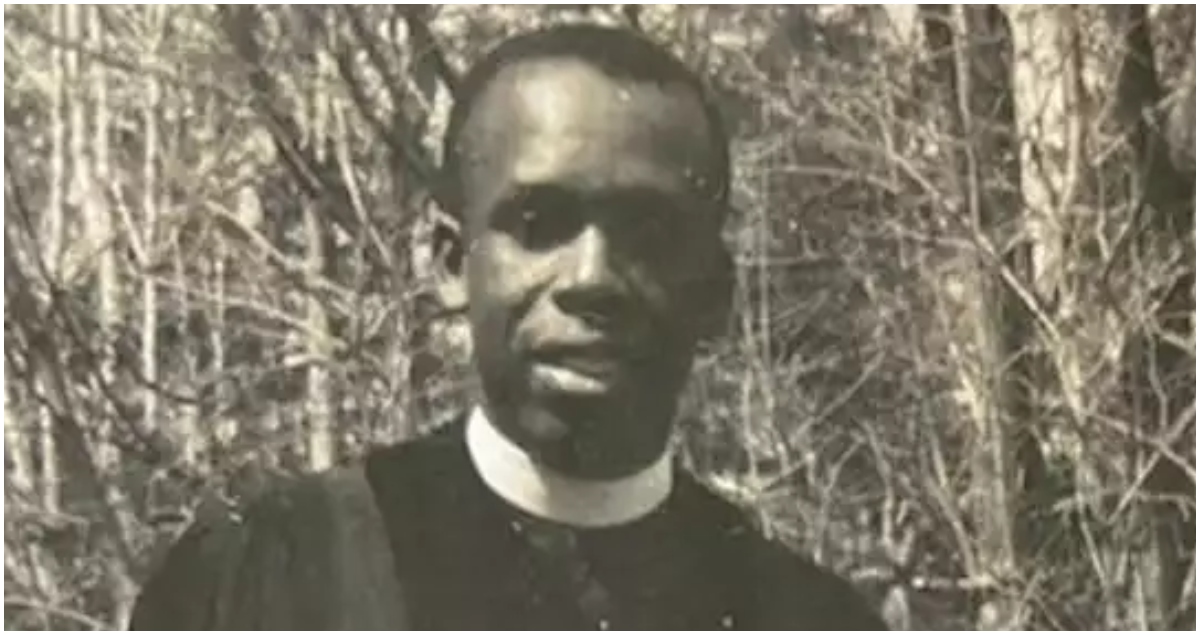Rev. John Percell Ball: A Fearless Leader and Visionary Pastor
Rev. John Percell Ball played a crucial role in establishing Ridgefield’s first Black church, the Goodwill Baptist Church. His leadership and activism helped shape both the spiritual and civil rights landscape in Ridgefield and beyond.
Ball was a man of faith, strength, and determination. In 1941, he founded Goodwill Baptist Church on Creamery Lane, providing Black residents with a dedicated place for worship and community support. At the same time, he was actively involved in the Civil Rights Movement, advocating for the rights and dignity of Black Americans.
The Founding of Goodwill Baptist Church
Before 1941, Black residents of Ridgefield had no formal place of worship. Rev. Ball, who was also serving as the pastor of Grace Baptist Church in Norwalk, saw the need for a church that could serve Ridgefield’s Black community.
He rallied a group of 34 Black congregants who lived in the area and worked tirelessly to establish the church. With strong community support, the congregation raised enough funds to purchase the property at 29 Creamery Lane. By 1948, they had fully paid off their mortgage, marking a significant achievement with a “mortgage-burning ceremony.”
A Pillar of Strength During the Civil Rights Era
Rev. Ball’s influence extended beyond the church. He was deeply involved in civil rights activism, particularly in Norwalk, Connecticut. According to historian Christine Johnsmeyer, his work in advancing civil rights helped prevent the kind of destruction that other Connecticut municipalities experienced during the era.
“That man was fearless and relentless and untiring in his dedication to seeing to the spiritual needs of the Black community,” Johnsmeyer noted.
Ball’s advocacy often took him away from Ridgefield, and in 1947, he stepped down as pastor to focus more on civil rights efforts in Norwalk. However, his impact on Ridgefield’s Black community remained strong for years to come.
Goodwill Baptist Church and the Struggles of the 1960s
After Ball’s departure, Goodwill Baptist Church continued to serve as a community hub. Under the leadership of new pastors, including Rev. DeWitt Stevens, the church hosted dinners and events to strengthen the Black community during turbulent times.
However, the church faced significant challenges. As Black families moved out of Ridgefield, the congregation began to shrink. The aging church building also needed repairs, but fundraising efforts struggled to gain traction.
Following the assassination of Rev. Martin Luther King Jr. in 1968, the church community felt a sense of sorrow and defeat. Momentum to keep the church running slowed, and by 1969, Goodwill Baptist Church was officially disbanded. The building was later sold in 1974 and turned into a multifamily home.
Honoring Rev. Ball’s Legacy
Despite the church’s closure, Rev. Ball’s legacy continues to inspire. The Goodwill Baptist Church played a critical role in Ridgefield’s Black history, serving as both a place of worship and a symbol of resilience.
Today, historians like Christine Johnsmeyer are working to ensure that Ridgefield’s Black history is remembered. Her upcoming presentation, “The Story of Ridgefield’s First Black Church,” will highlight the church’s significance and the fearless leadership of Rev. John Percell Ball.
“Understanding this history deepens our appreciation of Ridgefield’s diverse past and helps us foster a more inclusive narrative for future generations,” said Stephen Bartkus, executive director of the Ridgefield Historical Society.





